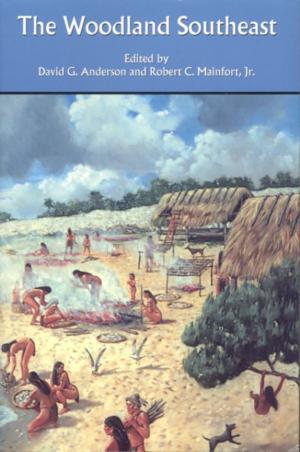Convicts, Coal, and the Banner Mine Tragedy
Nonfiction, Social & Cultural Studies, Social Science, Sociology, History, Americas, United States| Author: | William Warren Rogers, Robert David Ward | ISBN: | 9780817390402 |
| Publisher: | University of Alabama Press | Publication: | October 21, 2015 |
| Imprint: | University Alabama Press | Language: | English |
| Author: | William Warren Rogers, Robert David Ward |
| ISBN: | 9780817390402 |
| Publisher: | University of Alabama Press |
| Publication: | October 21, 2015 |
| Imprint: | University Alabama Press |
| Language: | English |
In the late 1870s, Jefferson County, Alabama, and the town of Elyton (near the future Birmingham) became the focus of a remarkable industrial and mining revolution. Together with the surrounding counties, the area was penetrated by railroads. Surprisingly large deposits of bituminous coal, limestone, and iron ore—the exact ingredients for the manufacture of iron and, later, steel—began to be exploited. Now, with transportation, modern extractive techniques, and capital, the region’s geological riches began yielding enormous profits.
A labor force was necessary to maintain and expand the Birmingham area’s industrial boom. Many workers were native Alabamians. There was as well an immigrant ethnic work force, small but important. The native and immigrant laborers became problems for management when workers began affiliating with labor unions and striking for higher wages and better working conditions. In the wake of the management-labor disputes, the industrialists resorted to an artificial work force—convict labor. Alabama’s state and county officials sought to avoid expense and reap profits by leasing prisoners to industry and farms for their labor.
This book is about the men who worked involuntarily in the Banner Coal Mine, owned by the Pratt Consolidated Coal Company. And it is about the repercussions and consequences that followed an explosion at the mine in the spring of 1911 that killed 128 convict miners.
In the late 1870s, Jefferson County, Alabama, and the town of Elyton (near the future Birmingham) became the focus of a remarkable industrial and mining revolution. Together with the surrounding counties, the area was penetrated by railroads. Surprisingly large deposits of bituminous coal, limestone, and iron ore—the exact ingredients for the manufacture of iron and, later, steel—began to be exploited. Now, with transportation, modern extractive techniques, and capital, the region’s geological riches began yielding enormous profits.
A labor force was necessary to maintain and expand the Birmingham area’s industrial boom. Many workers were native Alabamians. There was as well an immigrant ethnic work force, small but important. The native and immigrant laborers became problems for management when workers began affiliating with labor unions and striking for higher wages and better working conditions. In the wake of the management-labor disputes, the industrialists resorted to an artificial work force—convict labor. Alabama’s state and county officials sought to avoid expense and reap profits by leasing prisoners to industry and farms for their labor.
This book is about the men who worked involuntarily in the Banner Coal Mine, owned by the Pratt Consolidated Coal Company. And it is about the repercussions and consequences that followed an explosion at the mine in the spring of 1911 that killed 128 convict miners.















